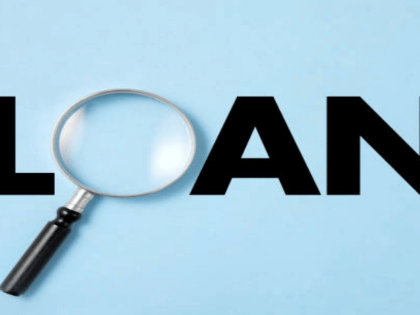How to Determine Whether You Qualify for a House Loan
For the majority of borrowers who do not have hundreds of thousands of dollars in savings, mortgage loans are an essential component of the home-buying process. A lender must examine your financial records and confirm your income, assets, debt-to-income ratio, and credit score before approving you for a mortgage.
You might feel more at ease during the process if you know how to determine your eligibility for a house loan. The following are the top five factors that mortgage lenders take into account:
Your credit rating

Lenders examine your credit records and issue you a credit score during the mortgage application process. Lenders use this three-digit number to determine the risk of lending you money because it indicates your propensity to repay loans and pay bills on time.
A credit score between 800 and 850 is considered good or above average. Customers with these scores typically receive the best loan arrangements, including the lowest interest rates, and go through simple approval procedures.
While FHA loans normally allow applicants with a score as low as 500, USDA and VA loan programs do not have a minimum credit score requirement. Conventional house loans have a minimum credit score of 620. On the other hand, you can increase your eligibility and reduce your debt-to-income ratio by setting aside more money for a larger down payment.
Lenders also take into account your income, and depending on where you live and how you work, you could have to fulfill specific standards. For instance, only citizens of specific rural areas are eligible for certain government-backed credit programs, such as those offered by the Department of Agriculture and the Veterans Administration.
Your Earnings

In order to maintain a mortgage payment, lenders seek a consistent source of income. This covers all of your revenue streams, including commissions from investments, overtime pay, earnings from rent, and wages or salaries. They might also count payments for child support or alimony as income. To ascertain if you can afford a loan, the lender would take into account your entire monthly income after deducting your current debts. You may call this ratio your debt-to-income (DTI).
You need to make enough money to pay for your mortgage, property taxes, and homeowners insurance in order to be eligible for a house loan. You also need money for other costs associated with becoming a homeowner, such as new furniture and structural maintenance.
Lenders will analyze your pay stubs or W-2 forms and assess your bank accounts in order to determine the consistency of your income. In the event that you get sporadic income, such as bonuses or commissions, your lender will require documentation attesting to the stability of those deposits. Your last two years' tax returns must also be provided.
Your initial deposit

Making a sizable down payment is essential to being eligible for a mortgage. This demonstrates a dedication to homeownership and acts as a safety net against unforeseen financial difficulties. It can also help you avoid becoming "house poor," a situation in which an excessive amount of your income is allocated to housing expenses, by lowering your debt-to-income ratio.
Although certain lenders may provide low- or no-down payment options, conventional loans backed by Fannie Mae and Freddie Mac frequently require a minimum down payment of 3%. You can look up these choices online to learn more about them.
By obtaining pre-approval and pre-qualification from many lenders, you can get an idea of what you might be eligible for. Pre-qualification provides you with an estimate of the size of the mortgage you may be accepted for, but it is not as complicated as loan applications. In order to decide if you are a good risk, lenders will evaluate your overall eligibility by looking at your credit history, income stability, and amount of outstanding debt. Your credit score, income, debt-to-income ratio, down payment amount, and loan-to-value (LTV) ratio are among the variables taken into account.
The LTV Ratio

Your loan-to-value (LTV) ratio is one of the ways that lenders determine how much you can afford to borrow. This sum is computed by dividing the total amount of your mortgage by the estimated worth of your house.
You benefit from a low LTV since it lessens the likelihood that you will default on your mortgage. Additionally, it assists you in avoiding the expense of mortgage insurance, which is normally necessary for traditional loans with an LTV greater than 80%.
You can reduce your LTV in a number of ways, one of which is to increase your down payment. You can increase your chances of being approved for a mortgage and demonstrate your commitment to homeownership by making a sizable down payment.
Refinancing your mortgage is one of your other possibilities; this might lower your interest rates and monthly payments. If you're thinking about this option, bear in mind that your lender will assess your loan-to-value (LTV) in conjunction with other home equity loans, including a home equity loan (HELOC), and the sum on your initial mortgage.










